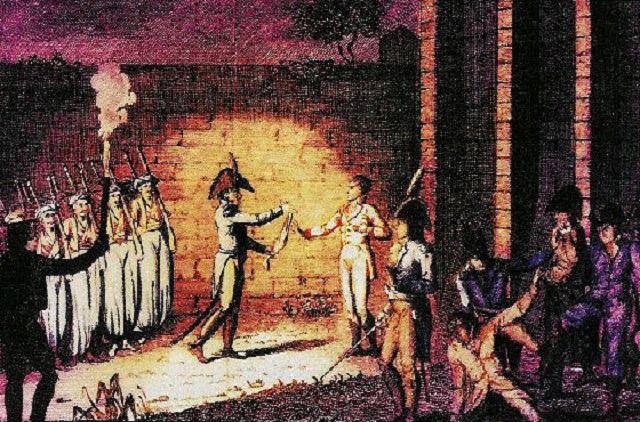
French prince Louis-Antoine-Henri de Bourbon-Condé was executed on this day in 1804. He bore the title of Duke of Enghien (French: duc d’Enghien), and is generally referred to only by his title. The execution of the Duke of Enghien caused a scandal in Europe, particularly among aristocratic circles, and it is even mentioned at the beginning of Tolstoy’s novel War and Peace.
Namely, it was the first time that Napoleon decided to spill royal blood, since the Duke was a member of the French royal Bourbon dynasty. Foreign aristocrats and rulers had previously considered Napoleon an improvement in comparison to the bloody days of the French Revolution, and this execution tarnished Napoleon’s image.
The Duke of Enghien was the last surviving member of the House of Condé, a younger branch of the Bourbon dynasty. Namely, his great-great-grandfather was the famed Prince of Condé, one of King Louis XIV’s military commanders, also known as Grand Condé (French. le Grand Condé). For a long time, the Princes of Condé bore the exceptionally prestigious title of “First Prince of the Blood” (French: premier prince du sang), which signified that, in case of the extinction of the main branch of the Bourbon family, they would automatically become the new French kings.
The young Duke of Enghien emigrated after the outbreak of the French Revolution, just like many other dignitaries from the Ancien Régime. In time, he settled down in the town of Ettenheim near the Rhine, only a few kilometers from the French border. In 1804, Napoleon ordered French troops to secretly cross the border and arrest the Duke. And indeed, the Duke was captured and imprisoned in the Château de Vincennes near Paris (Vincennes is today practically a part of Paris).
The Duke was sentenced to death under false charges and executed in Vincennes. Allegedly, even one of Napoleon’s close associated described the execution using the phrase “C’est pire qu’un crime, c’est une faute” (“This is worse than a crime, this is a mistake”).




